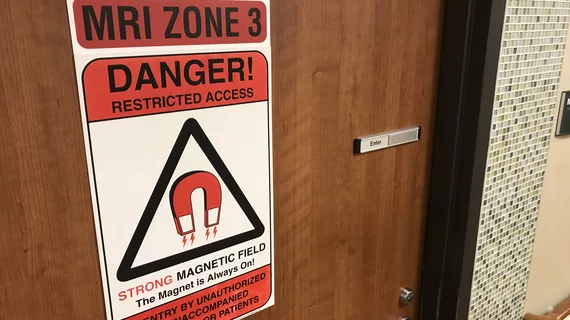Details emerge on yet another MRI accident
New details have emerged regarding a mysterious yet, allegedly, serious accident involving a nurse in an MRI suite in a Northern California hospital.
The accident happened on February 23, and it has since been revealed that it occurred at Kaiser Permanente’s Redwood City Medical Center, according to a statement the company released to Tobias Gilk, MRSO, MRSE, senior VP of RAD-Planning and founder of Gilk Radiology Consultants.
Although the statement provided to Gilk, who is an expert on MRI safety, does clarify the location of the incident and that it did involve a patient, it stopped short of sharing additional details due to HIPAA restrictions and an ongoing investigation of the ordeal.
Details of the incident are unclear. It has been speculated that the accident involved a nurse transporting a patient to an MRI suite on a gurney, which was allegedly sucked into the MRI bore, causing the patient to fall off of the stretcher and the nurse to sustain serious injuries. According to reports, the senior MRI tech on duty during that time was not in the room when the nurse was transporting the patient.
The statement indicates that the accident was “an isolated occurrence” that was investigated immediately.
“Our teams responded quickly and those involved immediately received the care and support they needed,” the statement reads. “We immediately investigated the root cause and addressed contributing factors, including modifying protocols, changes in equipment, and enhanced monitoring.”
Health Imaging also spoke with Tobias Gilk about several high-profile MRI accidents in recent months, hoping to gain more insight on what could be at the root of the issue.
"Something about the past few months feels different to me, and if I had to guess I’d say we’re experiencing a greater number of accidents," Gilk said. "Staffing shortages, whipsaw rebounds in MRI exam demand, ever-growing throughput pressures all contribute to an environment of increasing risk in MRI."
As for what can be done about it, Gilk suggests that objective, concrete and enforceable standards are needed, and that these standards should serve as explicit criteria for MRI accreditation, not just with the American College of Radiology, but across the board.
"Broad-based change will require standards be applied to all MRI sites, not just ones accredited by one entity," Gilk said.
Coincidentally, the ACR is currently updating its Manual on Magnetic Resonance Safety, opening up the process for public comment through April 14, 2023.
The submission form can be found here.

